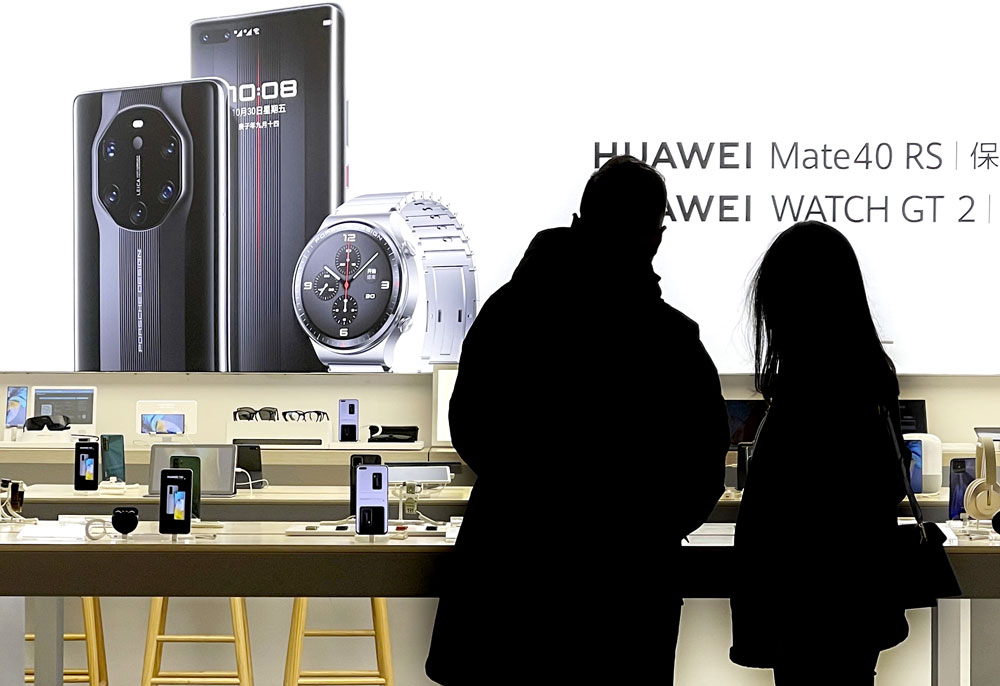
Huawei Technologies Co's decision to charge royalty fees for the use of its 5G technologies in smartphones will help the Chinese tech company continue its heavy spending on research and development, and enable it to better cope with the challenges arising from the US government restrictions, experts said on Wednesday.
The move came after Huawei said that for every multimode 5G smartphone that uses its 5G technologies, the company will receive up to $2.5 in royalties.
Xiang Ligang, director-general of the Information Consumption Alliance, a telecom industry association, said it is a common practice for tech companies to charge fees for the use of their patents, and the royalty rates Huawei charges are lower than that of its competitors such as Finnish telecom company Nokia and Swedish company Ericsson.
According to its official website, Nokia said in 2018 that it charges up to 3 euros ($3.58) per phone for its 5G standard essential patent portfolio. Ericsson said on its website that it charges $2.50 to $5 per device.
Xiang said Huawei deserves a reasonable return for its long-term investment into R&D. From 2010 to 2019, Huawei spent about $90 billion on R&D, according to a white paper on innovation and intellectual property the company issued on Tuesday.
Currently, Huawei is one of the world's largest patent holders, thanks to its sustained investment in innovation. By the end of 2020, Huawei held over 100,000 active patents worldwide.
Data from the intellectual property research organization GreyB showed that Huawei has 3,007 declared 5G patent families, or a group of same or similar patents filed in different countries. That is the highest number out of any company in the world, GreyB said.
The move also came as Huawei is facing restrictions from the US and other governments, which has crippled its smartphone business.
Though the money Huawei derives from royalty fees is not much compared to its overall revenue, it can help the company replenish its cash reserves to better manage its supply chains, which are under heavy pressure amid Washington's restrictions, said Fu Liang, an independent analyst who has been following the telecom sector for more than a decade.
Jason Ding, head of Huawei's intellectual property rights department, said the company estimates that it will receive about $1.2 billion to $1.3 billion in revenue from patent licensing between 2019 and 2021.
In comparison, Huawei's total revenue in 2019 reached 858.8 billion yuan ($132.2 billion), and its net profit hit 62.7 billion yuan.
Song Liuping, chief legal officer of Huawei, said royalty fees will not be a major revenue source for the company, and Huawei will continue to focus on developing telecom products and services.

